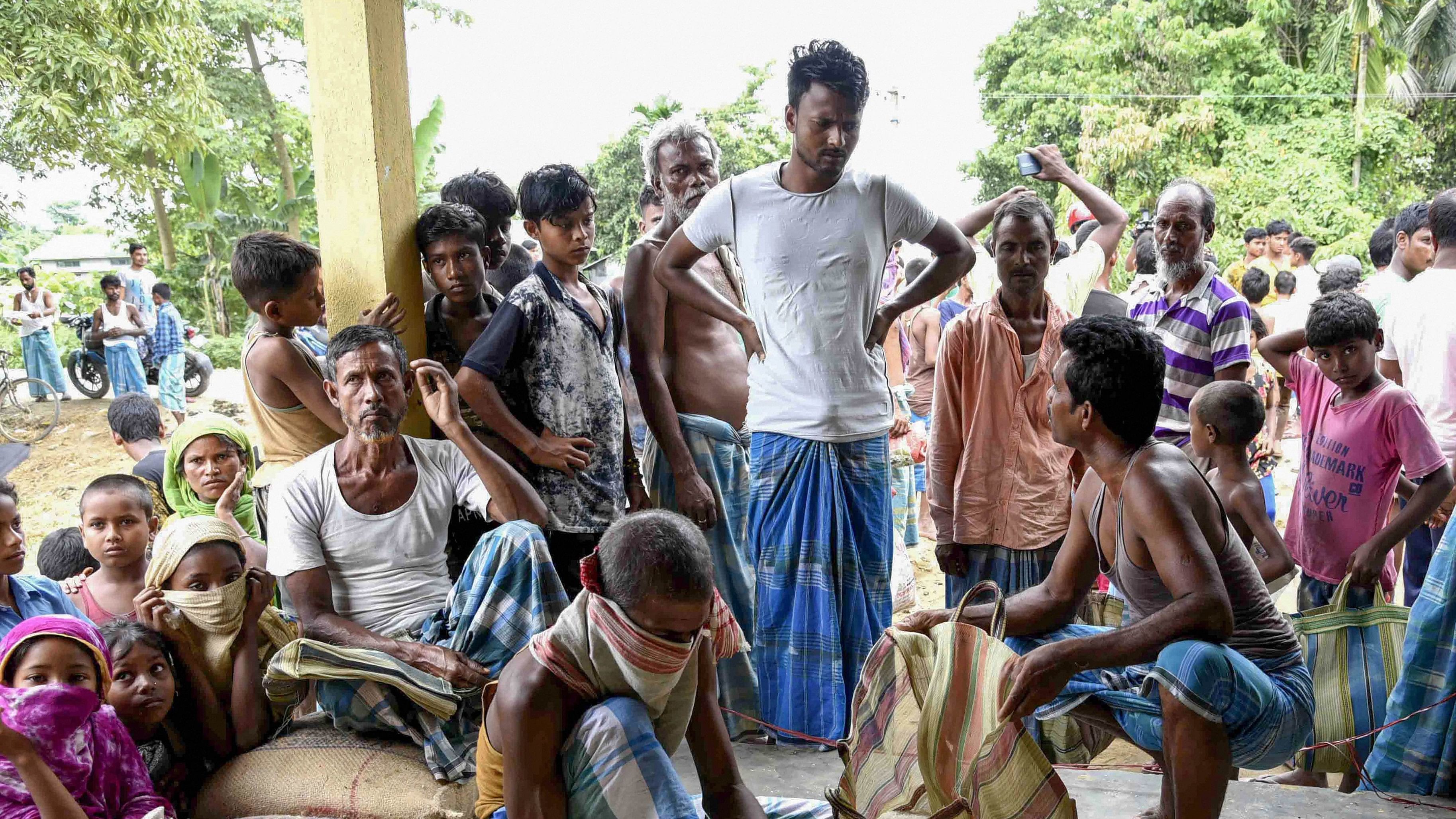
People collecting rations.
Credit: PTI File Photo
Hyderabad: Amid reports that the new Andhra Pradesh government may discontinue the 'door delivery' of the ration scheme, which the previous YSRCP government had introduced, a study conducted by Delhi based Liberation Technology (LibTech) India, revealed that the doorstep delivery system had significantly reduced the distance, time, and cost (including opportunity cost) tribals face when collecting rations every month.
Adivasi communities in Andhra Pradesh, living in the rugged and remote terrains of the Eastern Ghats, face significant challenges in accessing Fair Price Shops (FPSs) due to difficult commuting and limited public transportation infrastructure.
As a part of the study, teams of LibTech India having of engineers, social workers, and social scientists gathered information from 790 households by interviewing members from 10 randomly selected shandies out of a total of 40, covering 11 mandals within the Paderu Integrated Tribal Development Agency (ITDA). The survey took place in October 2023. LibTech teams also conducted qualitative interviews of Adivasis and officials from the village to the district level.
Around 83 per cent of respondents prefer the doorstep delivery systems over the depot system for collecting rations, the survey found. Only 9 per cent preferred the FPS system, while 8 per cent said they were fine with both.
Around 9 per cent of the respondents said that the distance to fetch rations was higher in the FPS system and a similar percentage of the respondents said that the time to travel to collect rice grains was higher in the FPS system.
“The ration depots are often located far from their scattered habitations, creating a particular burden for vulnerable groups such as single women, widows, the elderly, and disabled individuals. In this context, the PDS 'doorstep delivery system,' technically known as the Mobile Dispenser Unit (MDU) system, was introduced by the erstwhile Government of Andhra Pradesh in 2021 with the aim of distributing rations at doorsteps. In the doorstep delivery system, an MDU operator (the driver of a mini goods carrier) was responsible for lifting rations in bulk from the local FPS and visiting each locality for distribution. Beneficiaries were informed through village volunteers about the day and time of the MDU visit, so they could be available at home to collect their rations. Essentially, ration distribution responsibilities were given to MDU operators, while FPS dealers served as suppliers of rations to MDUs,” LibTech India's Chakradhar Buddha who was part of the study told DH.
Based on the study, the LibTech team recommended that the state government should reconsider any proposal to revert to the old FPS system by removing the doorstep delivery system.
The government should continue to strengthen the doorstep delivery system (MDU) to address the significant challenges Adivasis face. It should also improve MDU operations to enhance efficiency and ensure timely visits and enhance accessibility and reduce associated costs with MDU operations,” said Naveen Gajjalagari who was also part of the study.
Other findings of the study:
- 93 per cent of the respondents said that the cost to travel to collect rice grains is higher in the FPS system.
- 93 per cent of the respondents said that the work lost to collect rice grains is higher in the FPS system.
- 90 per cent of the respondents said that the number of trips to collect rice grains is higher in the FPS system.
- 75 per cent of the respondents said that instances of receiving less rice grains than entitled are higher in the FPS system.
- 75 per cent of the respondents said that instances of missing rice grains completely are higher in the FPS system.
- 65 per cent of the respondents said that instances of being forced to buy additional items to collect rice grains are higher in the FPS system.
- 71 per cent of the respondents said that the grievance redressal system is better in the doorstep delivery system.
- 99 per cent of the respondents preferred to collect their ration rather than receiving the amount for food grains under the DBT scheme.